I’ve just watched the new Danny Boyle miniseries, Pistol, based on Sex Pistols bass player Steve Jones’ memoir, Lonely Boy.
The initial reviews were mixed, but I was instantly hooked.
Visually, and emotionally, it struck me. The colour of the late seventies, the 1977 Silver Jubilee echoing the Platinum Jubilee celebrations of this past week, a proliferation of flags, the scent of political and social unrest.
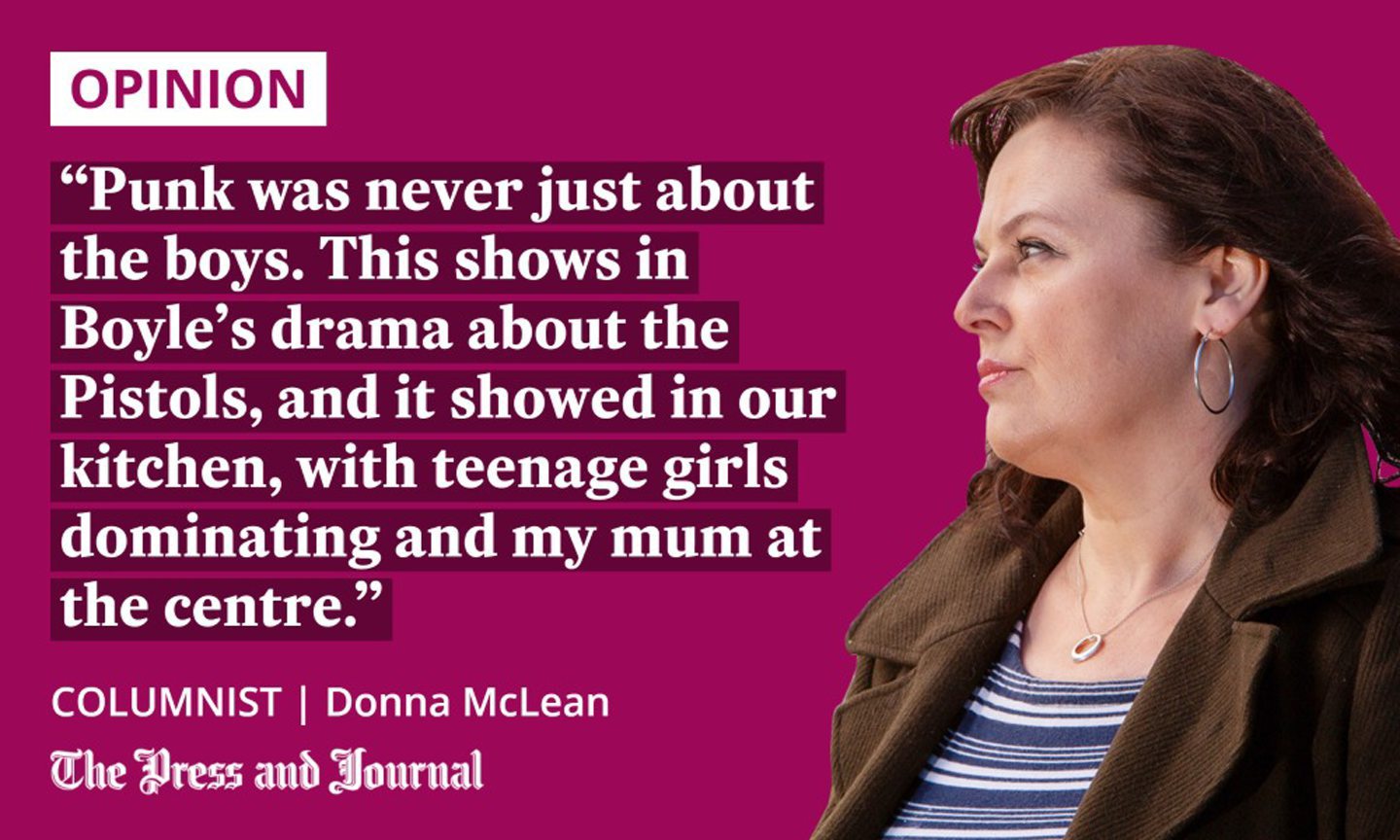
The set and costume designers capture that period beautifully. The cast of characters and their vulnerabilities emerge from behind their scary hair and outrageous costumes (remember, they were all so young – Sid Vicious only 21 when he died). I instantly connected with them, and that connection effortlessly transported me back to my own childhood experience.
In 1977, when I was five, we moved from my granny’s house into our own council maisonette, just before my sister was born. My mum was a hairdresser, and soon our kitchen became a hair salon and piercing studio for local punks.
My mum was a black-haired, blue-eyed goddess at the centre of this scene, shaving undercuts, mixing rainbow colours, creating spikes with a paste-like mixture of sugar and water.
She tended to everyone’s hair on the local estates: earnest bobs and serious fringes for the wee ones like me, silver-tinted perms for the old ladies, and the shock of the new for the Prestwick punks. There was crimped hair, undercuts (two girl cousins had matching bats shaped into the back of their heads) and elaborate hair sculptures, with mohicans, horns and spikes.
Our wee kitchen was like a chemical factory, the back door always open to let the fumes and cigarette smoke out. I would hover by the door, listening in to the conversations. My mum was an agony aunt as well as a stylist, and there were plentiful mugs of sweet, milky tea.
Despite public perception, punk was never just about the boys. This shows in Boyle’s drama about the Pistols, and it showed in our kitchen, with teenage girls dominating and my mum at the centre, quietly subversive.
Diving into memories
Fuelled by this surge of memories, I take a stage dive into the past, rooting around for evidence of the local punk scene. The first band I come across is The One Takes. I let out a gasp and then a delighted laugh, as I realise the singer and bass player is someone I know. My old pal, Eddie – a school friend’s older brother, who I met at a Hogmanay party when I was 18.
Eddie’s place was my first port of call when I landed in London in the nineties, invited to stay until I was settled. The One Takes were a seemingly popular band, supporting The Clash at the Apollo Glasgow in 1980, and recording tracks in a studio called Sirocco in Kilmarnock.
Then there was Another Pretty Face, who recorded on the Powbeat record label, named after the Pow Burn in Prestwick. Mike Scott of The Waterboys fame played with the band for a while, and they supported Stiff Little Fingers at the Glasgow Apollo and Prestwick town hall. I wonder if any of my uncles were in the audience at this gig.
‘We’re the flowers in the dustbin’
Looking back now, it strikes me how lucky I am to have my mum and to have grown up with this attitude of openness, this acceptance of change. When I was a small child, we didn’t have much money, but I was given the gift of flexibility and the unusually tolerant world view that my mum had.
The seventies in Scotland were marked by many things but, for me, the energy and vibrancy of punk as it exploded into the living rooms of our small town is a defining feature.
I’ll never forget the first time I heard Sex Pistols’ God Save the Queen, on a warm summer night in 1977. My mum, pregnant with my sister, was cutting her friend Jenny’s hair.
Jenny had a son who was 12 years older than me. From his bedroom, an extraordinary noise blasted out, shaking the ceiling. It was like nothing I’d heard before. Five-year-old me was struck silent.
“When there’s no future, how can there be sin?
We’re the flowers in the dustbin
We’re the poison in your human machine
We’re the future, your future”
I held on to this tightly, until I could express my own teenage freedom through music, clothes and, of course, hair by my mum.
Donna McLean is originally from Ayrshire and is a mum of twins, writer and activist
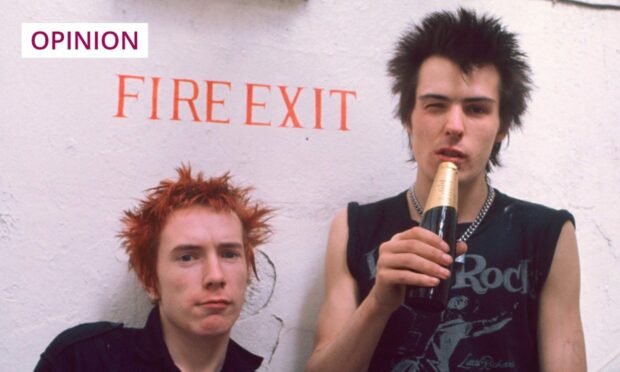
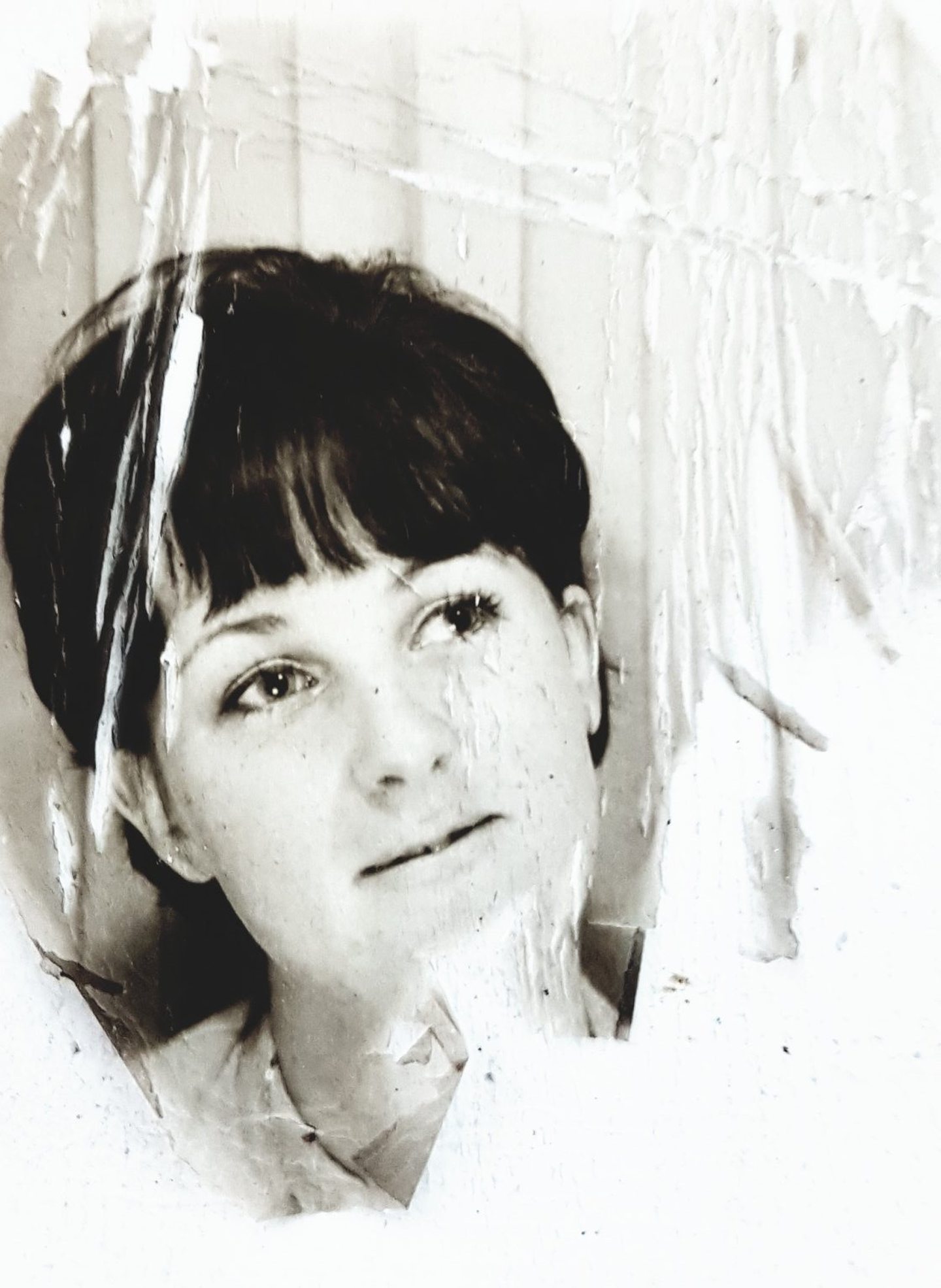
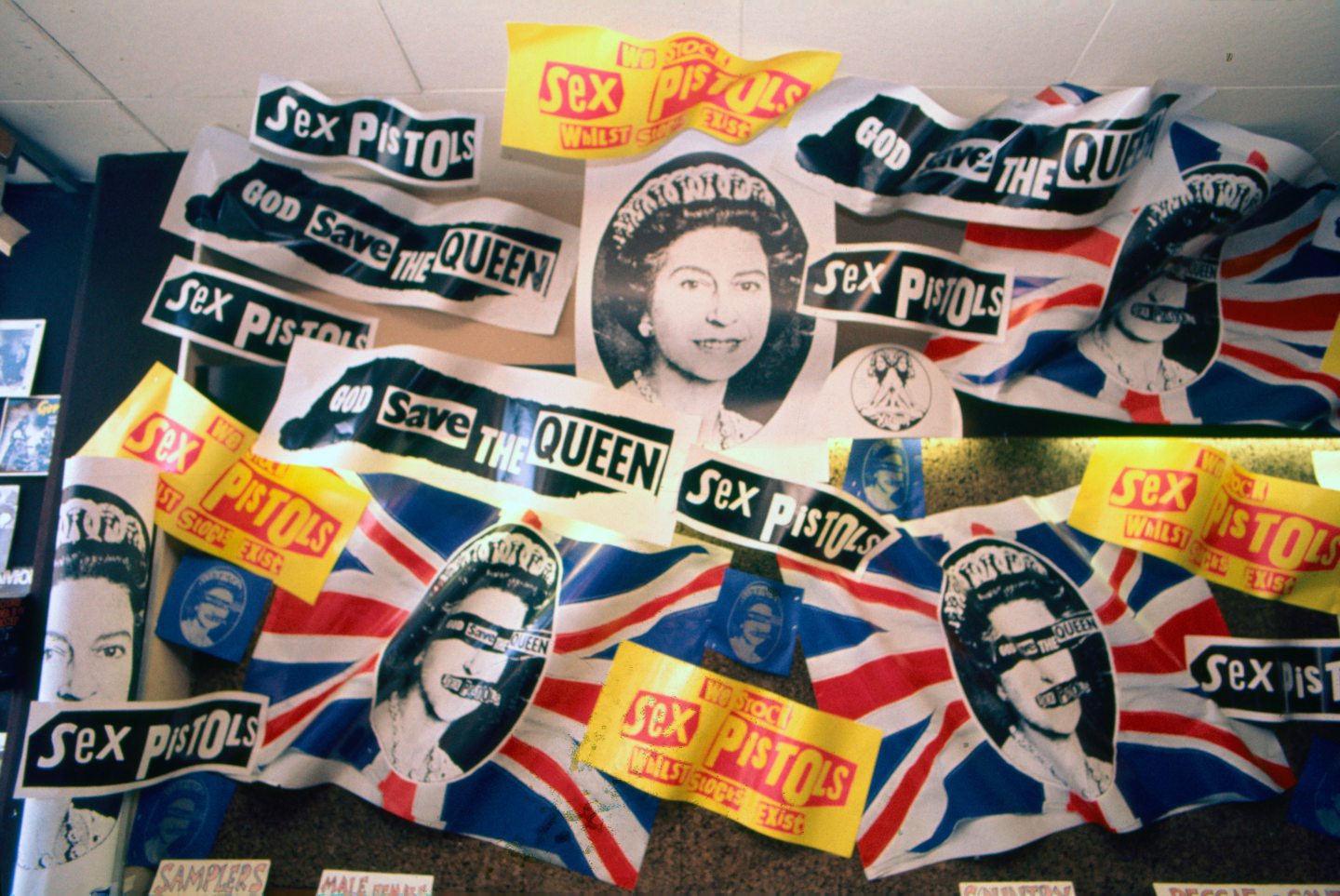

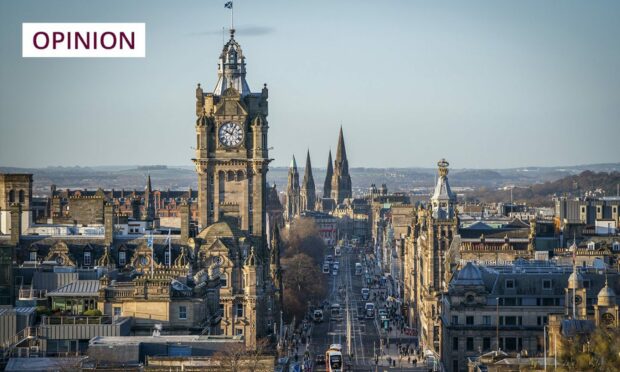
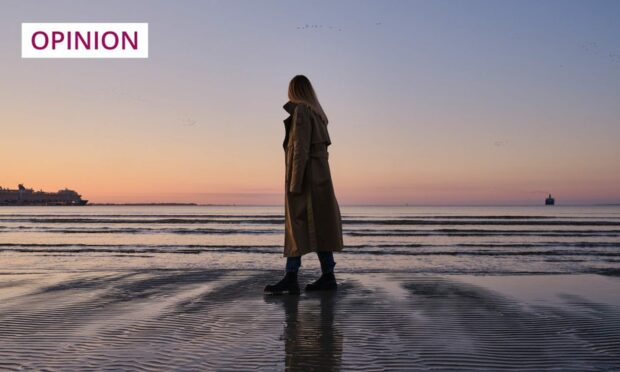
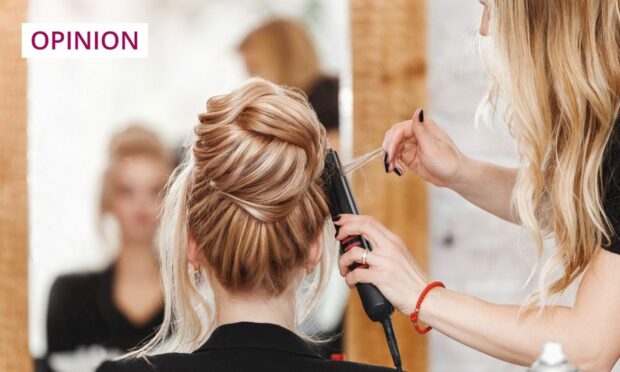
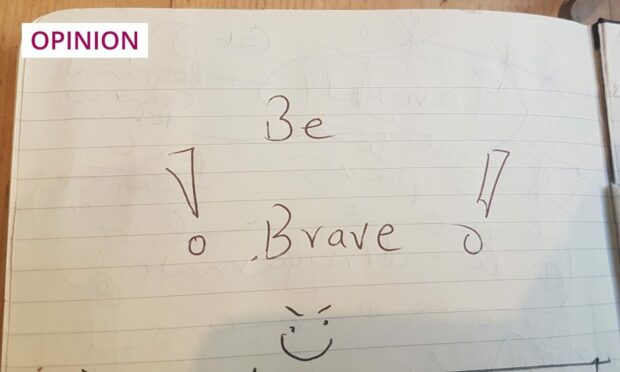

Conversation